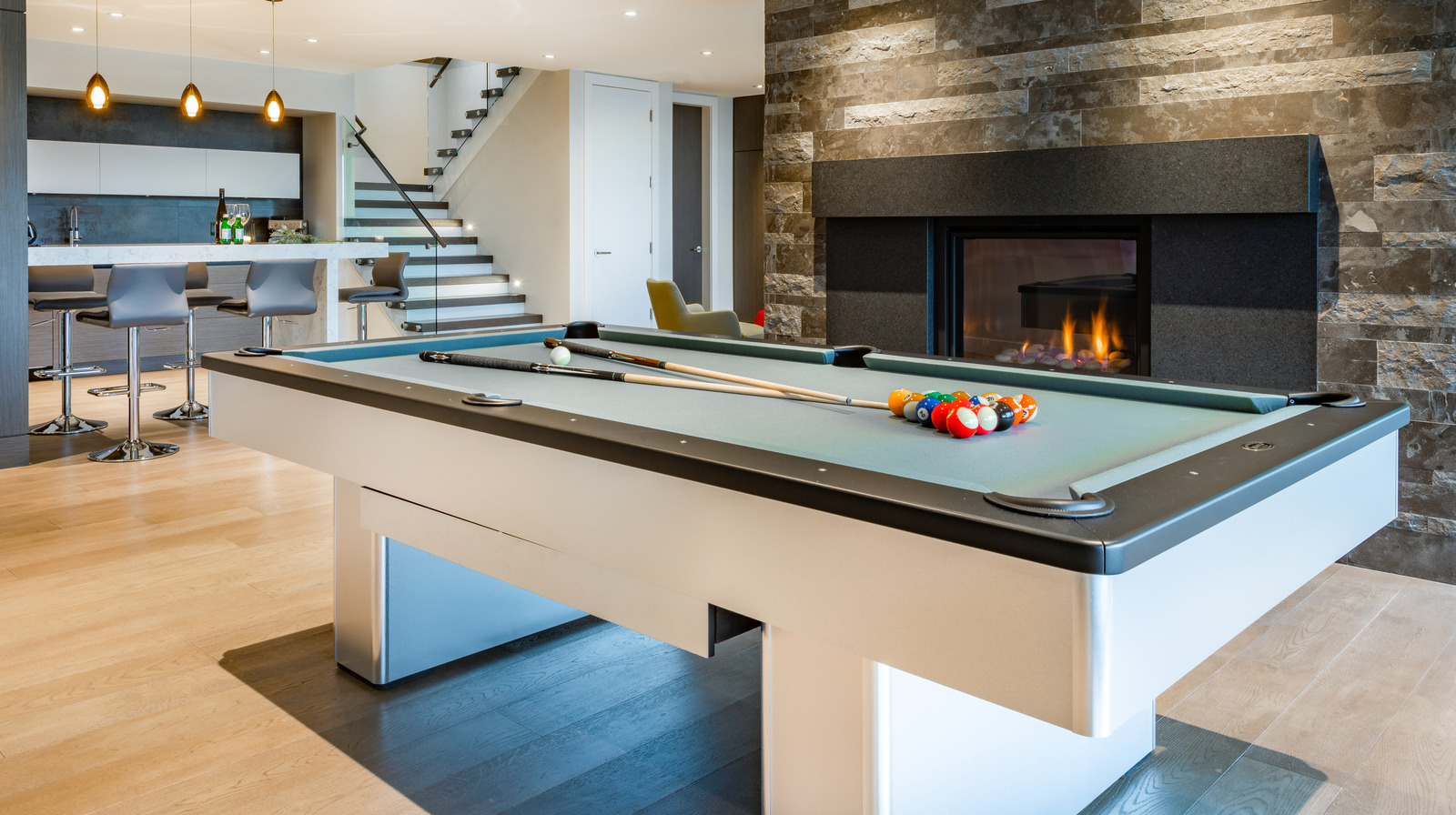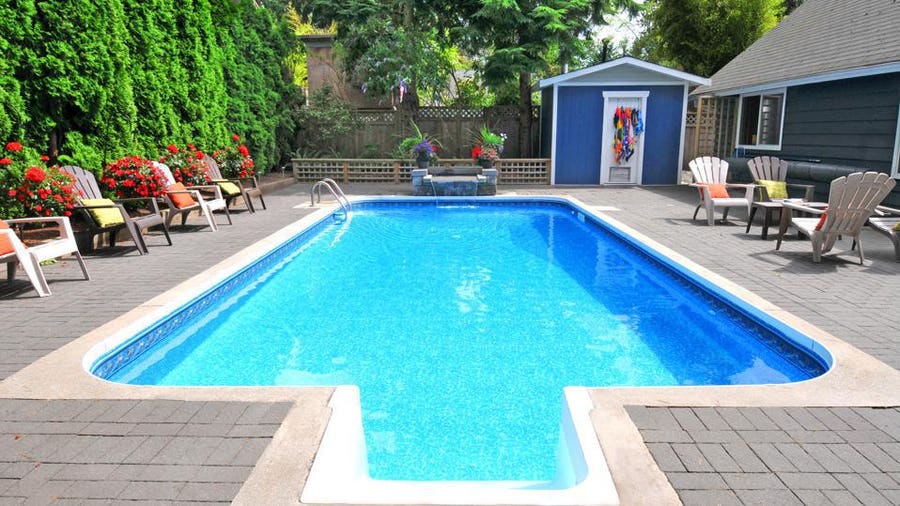A pool can cost anywhere from $20,000 to $100,000, depending on factors such as size, materials used, and additional features. Welcome to the world of pools, where you can create a personal oasis right in your backyard.
Whether you dream of a tranquil, natural lagoon or a sleek, modern oasis, a pool can transform your outdoor space into a haven for relaxation, exercise, and entertainment. But how much does a pool truly cost? Well, the price can vary greatly depending on various factors.
We will explore the average cost of pools, the different factors that influence their price, and any additional costs that you should consider when planning to install a pool. So, let’s dive into the details!
Factors Affecting Pool Pricing
When considering the investment in a pool, it’s essential to understand the diverse factors that can impact the pricing. Various elements, such as the size of the pool, the materials used, and any additional features, can significantly influence the total cost. By taking these factors into account, you can make an informed decision and ensure that your pool meets your specific requirements.
Size Of The Pool
The size of a pool plays a crucial role in determining its overall cost. Larger pools typically require more materials and labor for construction, leading to higher prices. Conversely, smaller pools are generally more affordable due to their reduced resource needs. The dimensions of the pool area and the desired depth can also impact the overall size and subsequent pricing.
Materials Used
The choice of materials for construction significantly influences pool pricing. High-quality materials such as natural stone or premium tiles can increase the overall cost due to their durability and aesthetic appeal. Vinyl or fiberglass options may offer more budget-friendly alternatives. The quality of the filtration and plumbing systems also affects the pricing, with premium components driving up costs.
Additional Features
When incorporating additional features into a pool design, it’s important to consider their impact on pricing. Luxurious elements such as waterfalls, lighting, and customized landscaping can significantly increase the overall cost. Similarly, heating and automation systems add to the initial investment but may provide long-term benefits in terms of convenience and comfort.

Credit: wahoopools.com
Types Of Pools
When it comes to building a pool, there are various types to choose from, each offering unique features and benefits. Understanding the different types of pools can help you make an informed decision based on your preferences, budget, and space availability. Let’s take a closer look at the popular options for pool types:
In-ground Pools
In-ground pools are the most common type of pool and are typically constructed by digging a hole and installing the pool structure into the ground. These pools offer a seamless and permanent addition to your property, with customization options for shape, depth, and materials, such as fiberglass, concrete, or vinyl. They can enhance the aesthetic appeal of your outdoor space and are ideal for those seeking a long-term investment in their property.
Above-ground Pools
Above-ground pools are a popular choice for individuals looking for a more affordable and flexible pool solution. These pools are installed above the ground, making them easier to assemble, disassemble, and relocate if needed. They come in various shapes and sizes, offering options for both relaxation and exercise. With the advancements in design and technology, above-ground pools now offer options with enhanced durability and aesthetics, making them a practical choice for many homeowners.
Infinity Pools
Infinity pools, also known as vanishing edge or negative edge pools, create a visually stunning effect where the water appears to merge with the surrounding landscape or horizon. These pools are generally designed to give the illusion of an endless water surface, making them a popular choice for properties with scenic views or elevated locations. Infinity pools require meticulous engineering and design to achieve the desired effect, making them a luxurious and captivating addition to any property.
Cost Breakdown
When considering the total cost of owning a pool, it’s essential to break down the expenses into various categories such as Initial Installation Costs, Maintenance Costs, and Operating Costs.
Initial Installation Costs
- Fees for permits and inspections
- Pool excavation and construction labor
- Cost of materials such as tiles, pumps, and filters
Maintenance Costs
- Regular cleaning and chemical treatments
- Repair and replacement of equipment
- Professional servicing fees
Operating Costs
- Water and electricity usage for filtration system
- Heating costs if applicable
- Insurance and property taxes

Credit: www.housedigest.com
Budgeting For A Pool
When it comes to adding a pool to your property, budgeting is an essential step in the planning process. It is important to set a realistic budget to ensure that you can afford the pool of your dreams without breaking the bank. In this article, we will explore the factors that you need to consider when budgeting for a pool.
Setting A Realistic Budget
Before diving into the costs associated with building a pool, it is crucial to set a realistic budget. Your budget should be based on your financial capabilities and the features you want for your pool. Assess your current financial situation and determine how much you can comfortably allocate towards building and maintaining a pool.
Consider the following when setting your budget:
- The size and shape of the pool
- The type of pool (above-ground, inground, or semi-inground)
- The materials used for construction (concrete, vinyl, or fiberglass)
- The additional features you want, such as a patio, landscaping, or a pool cover
Factors To Consider In Budgeting
Once you have a realistic budget, it is important to consider several factors that will impact the overall cost of your pool project. Here are the key factors to keep in mind:
| Factors | Cost Considerations |
|---|---|
| Size and Shape | The larger and more complex the design, the higher the cost |
| Type of Pool | Above-ground pools are typically more affordable, while inground pools tend to be pricier |
| Materials Used | Concrete pools are generally more expensive than vinyl or fiberglass pools |
| Additional Features | Features like lighting, waterfalls, and heating systems can significantly increase the cost |
| Installation and Labor | The cost of hiring professionals for construction and installation |
| Permitting and Insurance | Expenses related to obtaining permits and the necessary insurance requirements |
By considering these factors, you can make informed decisions and ensure that your budget aligns with your expectations. Keep in mind that unexpected costs can arise during the process, so it’s essential to have some flexibility in your budget.
Diy Vs. Professional Installation
DIY vs. Professional Installation:
Deciding on whether to go the DIY route or hire professionals for your pool installation is a crucial consideration when determining the cost.
Pros And Cons Of Diy Installation:
- Pros: Cost-effective option for those with basic DIY skills.
- Cons: Risk of errors leading to additional expenses down the line.
Benefits Of Professional Installation:
- Pros: Expertise ensures proper installation and potential issues are addressed.
- Cons: Higher upfront cost compared to DIY installation.
Hidden Costs To Consider
When considering the cost of installing a pool, it’s crucial to factor in the various hidden costs that may not be immediately apparent. These additional expenses can significantly impact the overall budget and should not be overlooked. From landscaping costs to permit and inspection fees, understanding these hidden costs is essential for planning and budgeting effectively.
Landscaping Costs
Landscaping costs can often be a substantial part of building a pool. Once the pool is installed, the surrounding area will need to be landscaped to create a cohesive outdoor space. This can include planting trees and shrubs, laying sod or artificial turf, building retaining walls, and installing pathways or decks. These expenses should be factored into the budget from the outset to avoid any surprises later on.
Permit And Inspection Fees
Obtaining permits and undergoing inspections are necessary steps in the pool installation process. The cost of permits can vary depending on the location and the specific requirements of local authorities. Additionally, inspections conducted by building officials or other relevant entities may incur additional fees. It’s important to account for these expenses when budgeting for a new pool to avoid any delays or unforeseen costs.
Financing Options
When considering the installation of a pool, one of the crucial factors to contemplate is how to finance the project. Various financing options are available which provide the flexibility to make your dream pool a reality without placing a strain on your finances.
Personal Savings
Using personal savings to finance a pool is often considered a prudent approach. This can eliminate the need for interest payments and financing costs, providing a financial peace of mind. However, this option requires a considerable amount of savings to be available.
Home Equity Loans
Home equity loans can be a viable option for securing funds for pool installation. By leveraging the equity built up in a home, homeowners can access low-interest rates, making this a cost-effective financing solution. However, it’s essential to consider the potential risk of placing your home as collateral.
Pool Financing
Several financial institutions offer specific pool financing options tailored to meet the needs of homeowners. These loans typically have competitive interest rates and flexible payment terms. Additionally, some pool companies provide in-house financing, streamlining the process of securing funds for your pool project.

Credit: premierpoolsandspas.com
Conclusion
So there you have it, the cost of a pool varies by size, materials, and extras. Consider maintenance and installation costs. Research and plan for a pool that fits your budget and needs. Remember, a pool is an investment in your property and lifestyle.
Make the right choice for you!




